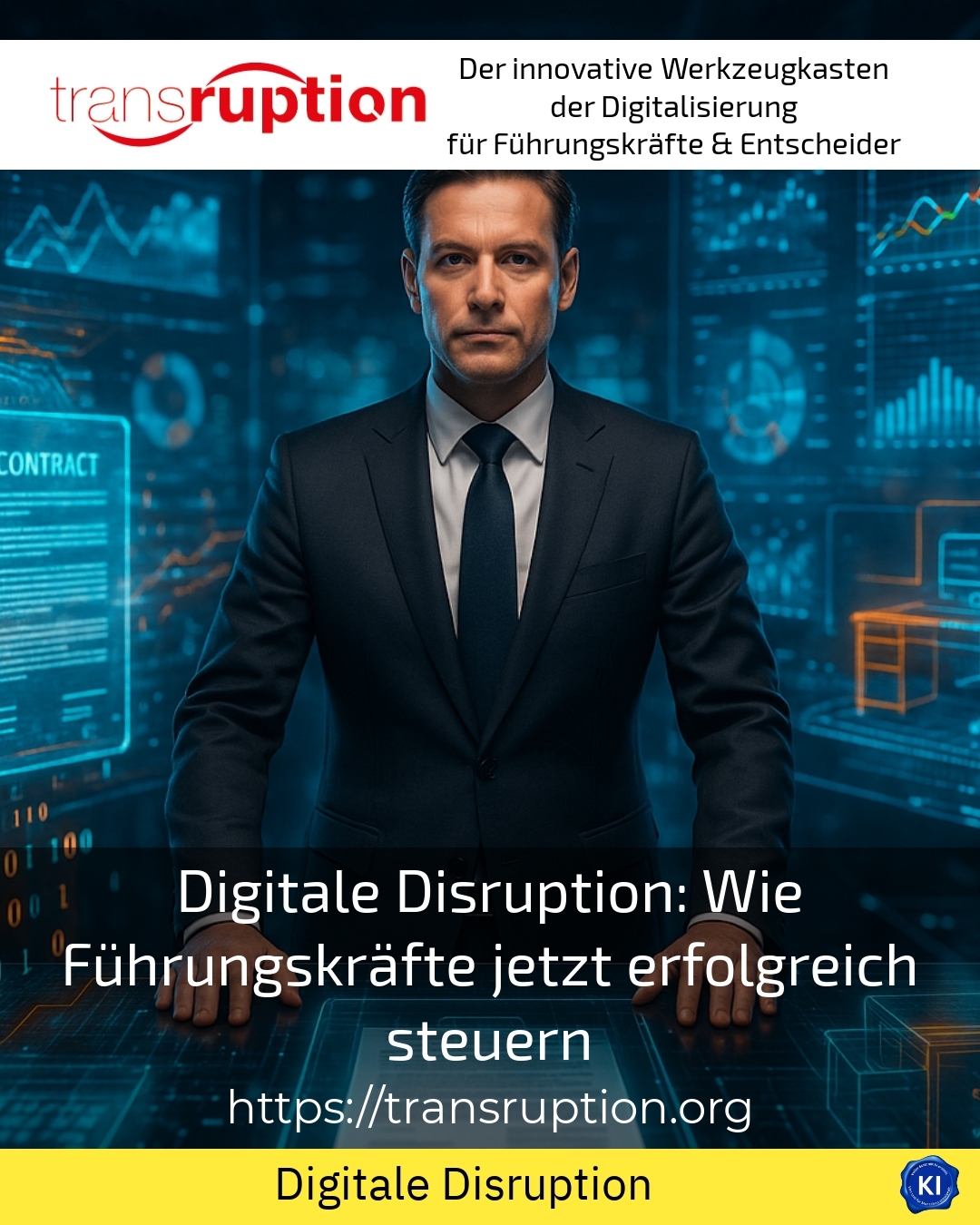Digital disruption** is presenting managers with unprecedented challenges. It is changing markets and business models at a rapid pace and forcing companies to fundamentally rethink their strategies. Right now, it is crucial for managers to steer these changes with a clear view in order to secure competitive advantages and realise new potential.
Digital disruption: New realities for companies and their management
Digital disruption goes far beyond traditional digitalisation. It not only means the transfer of existing processes into digital formats, but also the radical reorganisation of value chains. This gives rise to business models that break up traditional structures and in some cases replace them completely. One example of this is the logistics sector: cloud technologies and big data not only improve efficiency, but also enable completely new services such as real-time tracking or predictive maintenance that would otherwise be unthinkable.
Fintech start-ups in the financial sector are also showing how disruptive technologies are turning the banking world on its head. Apps for mobile payments and robo-advisors for investment decisions have expanded traditional business models and in some cases replaced them. Such developments require managers to have new skills and an open mindset for innovation.
Digital platforms are transforming customer relationships in marketing. Personalised content, automated campaigns and data-driven decisions are now standard. Managers must strategically manage how their company positions itself in the dynamic digital ecosphere and creates sustainable customer loyalty.
Managing digital disruption: success factors for managers
Managers are faced with the task of actively shaping digital disruption. This begins with the development of a clear vision that not only accompanies digital change, but also recognises it as an opportunity. This includes continuously expanding their own digital expertise - so-called digital savviness - in order to identify and evaluate technological trends at an early stage.
Establishing agile structures is another success factor. Teams should work in a cross-functional and networked manner in order to react quickly to market changes. In the automotive sector, for example, manufacturers rely on flexible development processes in order to adapt quickly to new concepts such as electromobility or autonomous driving.
Communication plays a central role. A digital code of conduct that is communicated transparently and regularly helps the organisation to constructively support change. This helps to reduce uncertainty and involve employees at an early stage.
BEST PRACTICE at the customer (name hidden due to NDA contract) The management focussed on targeted impulses for the development of digital skills in the team. Individual coaching sessions and regular workshops increased the willingness to embrace digital change. At the same time, agile tools were introduced to strengthen collaboration and transparency, which significantly accelerated project implementation.
Technological innovation and flexible strategies
Technological change as the core of digital disruption demands flexible strategies from companies. Rigid planning can limit the agility needed to anticipate or initiate disruptive developments. Start-ups in the media industry show how rapid adaptation and experimentation can create new business models that challenge established players.
Collaboration with external innovation networks and the early testing of digital solutions in particular give companies a competitive edge. For example, companies from the logistics sector report how big data-based route optimisation has not only reduced costs, but also increased customer satisfaction.
Change management as the key to success
Digital disruption raises fears and demands a willingness to adapt not only at management level, but in all areas. Professional change management that empowers employees step by step is therefore essential. Coaching can help to overcome individual hurdles and enable sustainable change.
In the retail sector, targeted training has enabled the introduction of new digital sales tools without any loss of productivity because inhibitions have been systematically removed. Managers who provide active support and impetus create a framework in which digital disruption can have a positive impact.
My analysis
Digital disruption** demands a high degree of flexibility, digital skills and process orientation from managers. Those who actively manage these challenges and support their organisation in remaining capable of acting in a volatile world will ensure sustainable success. The combination of a clear vision, open communication and accompanying coaching is proving to be particularly valuable. Digital disruption is not only a risk, but above all an opportunity for innovation and growth.
Further links from the text above:
Digital leadership: new requirements for managers - Deloitte
Technological change: digital disruption as a success factor
The strategy of digital disruption - KMU Magazin
For more information and if you have any questions, please contact Contact us or read more blog posts on the topic TRANSRUPTION here.
















